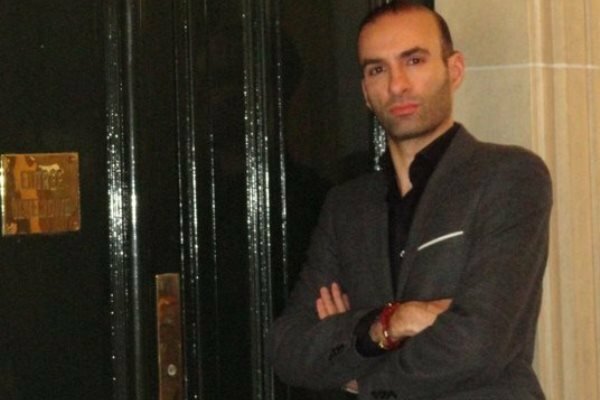TEHRAN-Professor Arshin Adib-Moghaddam, Chair of the Centre for Iranian Studies at the London Middle East Institute believes that “From the perspective of China, Iran is a major partner, not only in terms of hydrocarbon imports, but also because of a comparable strategic vision of a multipolar world order and a new EurAsian century which is behind the One Belt initative.”
Professor in Global Thought and Comparative Philosophies and Chair of the Centre for Iranian Studies at the London Middle East Institute, also adds that “Hence, China will try to facilitate any type of trade with Iran, whenever possible.”
Here is the full text of the interview:
Here is the full text of the interview:
Q: We have recently witnessed the resignation of German Designated head of Europe-Iran trade entity (INSTEX). In this regard, the long overdue implementation mechanism will be postponed again. Don’t you think that the resignation happened so that the Europeans can buy enough time?
A: I think the European Union has a genuine interest in keeping the JCPOA alive and INSTEX has been an important mechanism to that end, despite its flaws in terms of the financial incentives for Iran. Indeed, what we are witnessing is a firm EU-centred stance on the Iran file, which is what we have advocated for a long time. The EU needs to work in accordacne with its own interests, rather than following what every US administration says. This seems to be happening now, and Iran is a major object of that new orientation in international politics. Of course, Iran needs to keep its side of the bargain to make that diplomacy work.
Q: Is it possible that the special purpose vehicle for trade with Iran goes behind commercial export of pharmaceutical, medical devices and agri-food goods and covers oil trade? As you know Al-Monitor cited three anonymous sources as saying French President Emmanuel Macron had raised the establishment of a $15 billion credit line.
A: The details can only be worked out, once INSTEX is operative. President Macron has pursued important diplomatic initiatives, and as he has an interest in safeguarding the JCPOA, as indicated, he will try everything possible to that end.
Q: How do you evaluate the future of INSTEX as the US has threatened to put sanctions on foreign companies if it goes behind food and medical supplies?
A: The ability of the United States to enforce these sanctions is questionable. In general, Iran should not overestimate US power which is waning pretty much all over the world, not least because of the misguided policies of the Trump administration. This is a fact and easily discernable for scholars of global history and world politics.
Q: US extended Iran nuke sanction waivers for 90 days. What are the reasons behind this decision?
A: The inability to enforce sanctions as indicated. Current US policies towards Iran must be interpreted as a marketing ploy. Once one looks through the advertisement, the mediocrity of the displayed product becomes visibile.
Q: Iran’s Arak reactor renovation is China’s responsibility. But if chines want to import the redesigning equipments (from Europe), they do need more time. It seems that 90 day wavers will reduce China’s power of risk taking and prevent it from doing the commitments. Do you think that Beijing will take the risk?
A: Again, I would analyse the specific policies within the wider framework of strategy. From the perspective of China, Iran is a major partner, not only in terms of hydrocarbon imports, but also because of a comparable strategic vision of a multipolar world order and a new EurAsian century which is behind the One Belt initative. Hence, China will try to facilitate any type of trade with Iran, whenever possible. I think the commitment to the Arak reactor is a part of that approach.


No comments:
Post a Comment